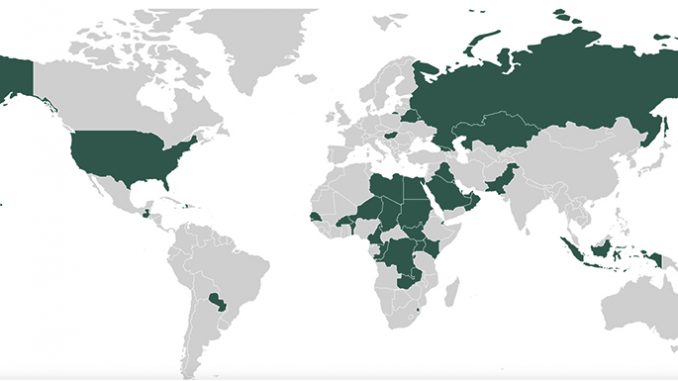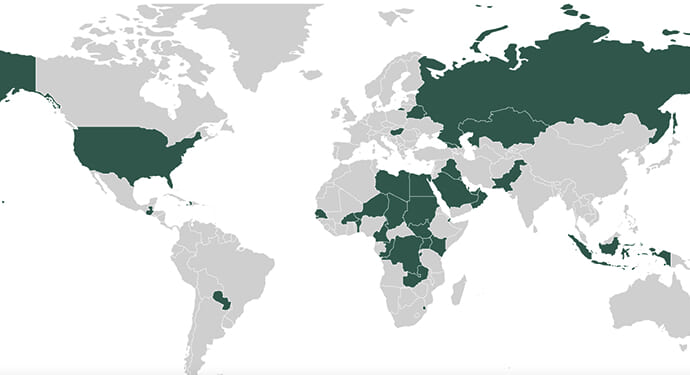
Marking five years since the Geneva Consensus Declaration (GCD) first challenged international efforts to enshrine abortion as a “human right,” Washington hosted a high-level speakers program and luncheon on October 22 that underscored renewed American participation—and the ongoing struggle to defend life and family on the world stage. The event was sponsored by the Institute for Women’s Health and the Hungarian Embassy.
The GCD is a political declaration that was adopted on October 22, 2020, with four key purposes:
- refuting efforts to make abortion an “international human right” by claiming it enjoyed the “consensus” of international support;
- protecting the natural family;
- reasserting national sovereignty over those two areas; and
- advancing women’s health.
GCD began with 34 states and is currently endorsed by 40, including the United States. Some countries, like Brazil and Poland, which were founders of the GCD, have subsequently left it because new governments supported abortion. The United States left within the first two weeks of the Biden administration but rejoined on January 24, 2025, under President Trump.
Valerie Huber, President and CEO of the Institute for Women’s Health, launched and presided over the proceedings. Huber served as the U.S. Special Representative for Global Women’s Health in the first Trump administration. She began by introducing Szabolcs Takács, the Hungarian ambassador to the United States, who presented the keynote speaker, Hungarian Foreign Minister Peter Szijjarto. Szijjarto accepted an award on behalf of Prime Minister Viktor Orban, recognizing the efforts of the Hungarian government to promote families in social and economic policy.
In his remarks, Szijjarto sketched the Hungarian government’s efforts to protect families and promote family life. Insisting that if “every child is a blessing,” the decision to have one should not be driven by economics or inhibited by socio-economic penalties. He described Hungary as being in a “family-based tax revolution,” in which a mother of two or more children will enjoy a lifelong income tax exemption starting in January 2026.
Hungary also guarantees, up to two years, a percentage of a mother’s previous salary during maternal leave. The government has launched various loan programs to support young families, some of which are cancelled out based on the number of children a family has. Szijjarto claimed the country’s fertility had increased 26% under these programs. (Hungary’s fertility rate in 2023 was still 1.51, among Europe’s lowest.)
A procession of congressional speakers was led by New Jersey’s long-time pro-life advocate Chris Smith, who talked about the need to improve women’s health care in the Third World. Noting that in many such countries, hemorrhage in a woman represents a “death sentence,” he warned about the dangers of pushing abortion pills, likely to lead to upticks in female and fetal mortality that are unrecorded because their mifepristone/misoprostol origins are unknown.
Other congressional speakers included Congressmen Richard McCormick (R-GA), Gary Palmer (R-AL), and August Pfluger (R-TX), as well as Senators James Lankford (R-OK) and Steve Daines (R-MT). In his remarks, Congressman Smith noted that while he chaired the bipartisan pro-life caucus in the House, it was hard being bipartisan because Democrats had primaried their last pro-life representative (Dan Lipinski of Illinois) out of the House.
Brette Powell of the White House Office of Public Liaison read a letter from President Trump applauding the GCD and noting the United States had rejoined it within the first five days of his second term. Speakers U.S. Deputy Secretary of State Thomas Landau and Deputy Secretary of Health and Human Services Jim O’Neill also represented the administration.
The event included flag ceremonies, as the United States flag was restored to the dais as a GCD participant, and the West African country of Guinea joined. The ambassadors of Guinea and Burundi, as well as other diplomats from Indonesia, addressed the gathering.
The GCD originated in part as an effort to push back against efforts to internationalize abortion “rights.” Various UN agencies and bodies regularly sought to claim abortion was a “human right,” not based on any vote but as a result of ‘international consensus,” driven largely by European Union countries and Canada. (The United States also supported those pushes under Democratic presidents). France’s President Macron wrote the “right to abortion” into the French Constitution in 2024. Prime Minister Pedro Sanchez is trying to do the same in Spain.
Various EU members have sought to write the same guarantees into the basic EU Treaties, so that abortion can be promoted as a “European value” that can be wielded against pro-life countries: the effort may have recently been frustrated by the failure of the Dutch government to endorse the idea. In their “periodic assessments” of human rights, various UN groups have already criticized some American states for adopting life-protective legislation in the wake of Dobbs.
The GCD was also adopted to counteract efforts to displace the primacy of the biological family constituted by a mother and a father, a concept very much in circulation in the “international human rights community.” Claiming that “equality” demands accommodation of “other family types,” efforts are pushed to equate those alternate models with the traditional family. Hungary has been a target of such criticism for its legislation barring gender ideology advocacy towards minors.
Within Europe, while marriage remains a “national competency” among European Union member states, the limitedly binding but highly influential European Court of Human Rights has already held that states should make “some” kind of unspecified accommodations for nonmarital partnership/familial arrangements.
Finally, the GCD focuses on promoting women’s health. Part of that effort is to break the nexus forged at the 1995 Beijing Women’s Conference that “women’s health” must include “sexual and reproductive health,” which are clear euphemisms for abortion.
But the effort is not merely lip service. GCD member states recognize that healthy women represent healthy families and women’s health should not be hostage to the service of abortion promotion. Various GCD states seek to embody their political commitments through expanded socio-economic programs and to advocate for international foreign assistance not tied to acceptance of a neocolonial sexual agenda.
Current GCD members are Bahrain, Belarus, Benin, Burkina Faso, Burundi, Cameroon, Central African Republic, Chad, Congo (Rep), Democratic Republic of Congo, Djibouti, Egypt, Eswatini, The Gambia, Georgia, Guatemala, Guinea, Haiti, Hungary, Indonesia, Iraq, Kazakhstan, Kenya, Kuwait, Libya, Nauru, Niger, Oman, Pakistan, Paraguay, Qatar, Russia, Saudi Arabia, Senegal, South Sudan, Sudan, Uganda, United Arab Emirates, United States, and Zambia.
The Holy See is not currently listed as a GCD participant.
GCD critics complain that the Declaration allies the United States with countries, especially Russia and some in the Middle East, with which Washington might not otherwise associate on human rights grounds. The criticism does not account for the African and Latin American countries, also part of GCD. It also raises the question of the accuracy of criticisms that U.S. foreign policy had previously advanced a particular sexual/gender agenda. Recognizing the particular scope of the GCD—national authority to protect life and the family while advancing women’s health in those areas—suggests that advocacy of lifestyle libertinism as a “right” alienated the United States from being able to partner with many countries.
With renewed U.S. participation early in the second Trump administration, Huber voiced optimism that the work of the GCD, and not merely its survival, could acquire a more central and lasting focus in the next three years. She also expressed optimism that the GCD participant list could be expanded, suggesting a goal of doubling its signatories to 80.
If you value the news and views Catholic World Report provides, please consider donating to support our efforts. Your contribution will help us continue to make CWR available to all readers worldwide for free, without a subscription. Thank you for your generosity!
Click here for more information on donating to CWR. Click here to sign up for our newsletter.












